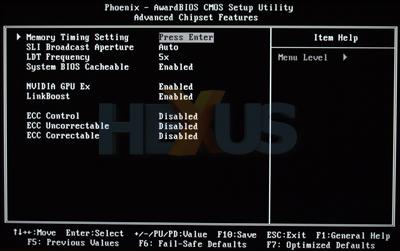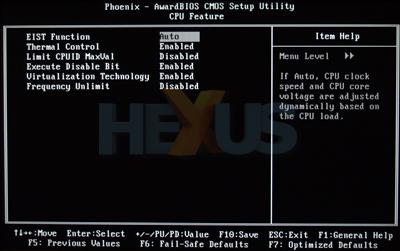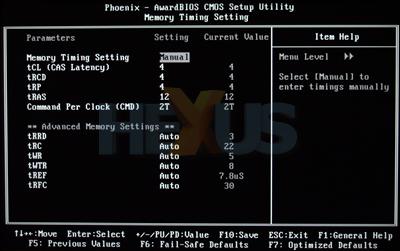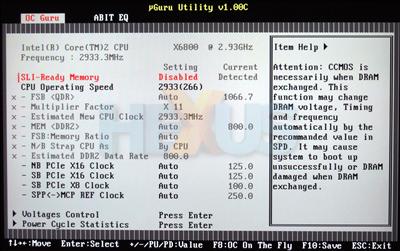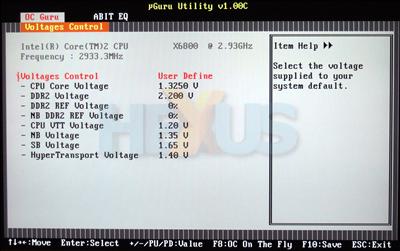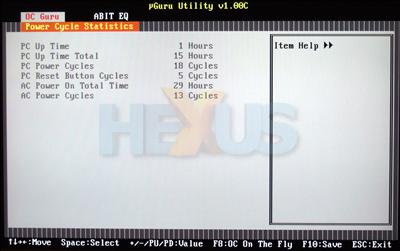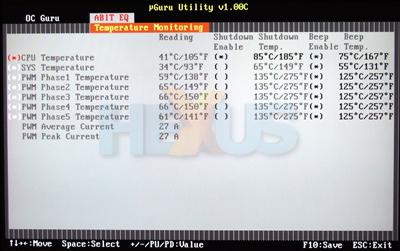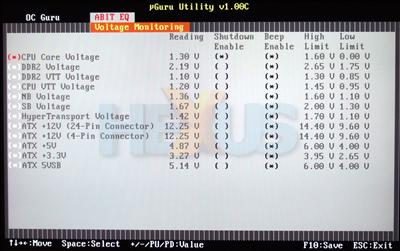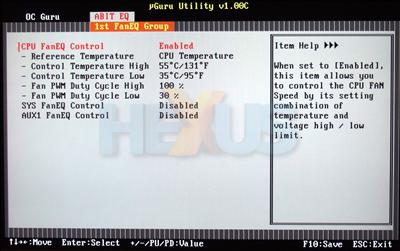BIOS
Based on abit's long history of highly-tweakable motherboards - and as the creator of jumper-free overclocking- you'd expect the company to be on the ball when it comes to overclocking - and the IN9 32X-MAX certainly doesn't disappoint.
The uGuru and ABIT EQ sections each offer a huge amount of control over the system's behaviour, allowing the user to extract the maximum performance from a PC. But it's not all geeky sunshine and roses. In the finest abit tradition, the BIOS we used at the start of our testing, Version 11, had a number of problems.
Enabling support for a USB mouse caused the PC to crash and reboot when installing Windows XP. If this was turned on after Windows had been installed, the operating system crashed as soon as it detected the USB host controller.
We also found memory bandwidth to be very low. This was caused by the BIOS using a default value for the tRFC (row-refresh cycle time) memory-timing of 255 clock cycles. Changing this to Auto reduced the timings to 30 cycles and gave a large improvement in memory bandwidth.
However, both these issues were fixed by the Version 12 BIOS.
In addition, support for C1E and EIST didn't work correctly and that hurt CPU temperatures and power usage. This isn't mentioned in the release notes for V12, so we assume that those issues have not been resolved.
abit has only released three BIOS revisions since the board's launch at the end of last year, so quite when it will sort out these problems in anyone's guess.
| abit IN9 32X-MAX | |
|---|---|
| Item | Specification |
| CPU FSB | 100-750MHz (1MHz increments) |
| CPU multiplier | CPU Min. (6x) - 60x (CPU max for locked CPUs, 1x increments) |
| PCIe slot-1 clock | 100-200MHz (1MHz increments) |
| PCIe slot-2 clock | 100-200MHz (1MHz increments) |
| PCIe slot-3 clock | 100-200MHz (1MHz increments) |
| Memory clock | 400-1400MHz (increments varies) |
HT reference clock (SPP-MCP) | 200-500MHz |
| HT multiplier (SPP-MCP) | 1x - 8x (1x increments) |
| CPU FSB strapping | FSB533/800/1066/1333/By CPU |
| CPU core voltage | 1.3250-1.9250V (0.01V increments) |
| Memory VDIMM | 1.800-3.000V (0.025V increments) |
| DDR2 reference voltage | -4%, -2%, 0%, +2% |
| NB voltage | 1.35/1.40/1.45/1.50/1.55V |
| SB voltage | 1.50/1.55/1.60/1.65/1.70V |
| FSB Termination voltage | 1.20/1.30/1.40/1.50V |
| HT voltage | 1.20/1.25/1.30/1.35/1.40V |






